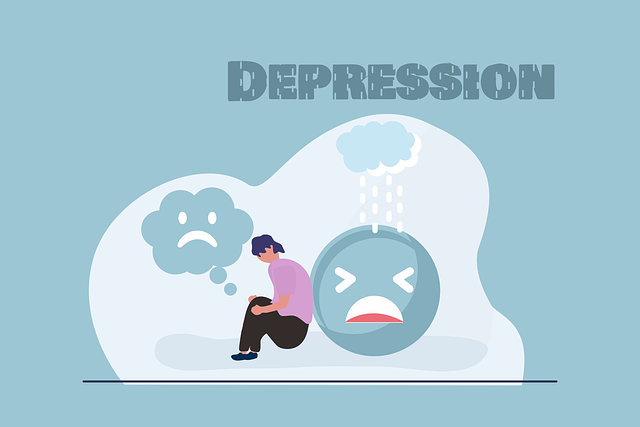Lone Tree Child Abuse Therapy employs the RFM (Recovery, Flourishing, Mastering) framework to build resilience in children, focusing on emotional navigation, mood management, and positive outlooks. Structured activities equip kids with coping mechanisms and a sense of empowerment, enhancing self-esteem and reframing negative thoughts. Relational, Functional, and Emotional (RFM) therapy leverages the therapeutic relationship to foster emotional intelligence and mental health awareness, ultimately improving academic performance and long-term mental wellness.
Resilience is a vital tool for children to navigate life’s challenges, and RFM (Resilience, Flexibility, and Mastery) exercises offer a structured approach to building this strength. This article explores the transformative power of RFM in Lone Tree Child Abuse Therapy settings. We’ll delve into how these exercises enhance well-being, support development, and provide practical strategies for implementing RFM techniques within therapy practices focused on child abuse victims. Understanding RFM can equip therapists with valuable tools to foster resilience in young minds.
- Understanding RFM and Its Role in Resilience Building for Children
- The Impact of Resilience Exercises on Child Well-being and Development
- Practical Applications: Implementing RFM in Lone Tree Child Abuse Therapy Settings
Understanding RFM and Its Role in Resilience Building for Children

Resilience is a vital skill for children to develop, as it equips them with the ability to navigate and overcome life’s challenges. RFM (Recovery, Flourishing, and Mastering) is a powerful framework that Lone Tree Child Abuse Therapy utilizes to foster this resilience in young individuals. This approach recognizes that building resilience isn’t just about coping with difficult situations but also about thriving and gaining mastery over one’s life.
Through RFM exercises, children learn to identify and harness their inherent strengths, which are often hidden beneath the surface of trauma or stress. By focusing on recovery from past experiences, flourishing in the present, and mastering new skills, these sessions help in self-esteem improvement. The Stress Management Workshops Organization emphasizes the importance of teaching kids mind over matter principles, enabling them to reframe negative thoughts and emotions, thereby enhancing their overall resilience.
The Impact of Resilience Exercises on Child Well-being and Development

Resilience exercises play a pivotal role in enhancing the well-being and overall development of children, especially those who have experienced trauma or lived through challenging circumstances. These structured activities are designed to equip kids with essential coping mechanisms and a sense of empowerment, which can be instrumental in their personal growth. Through engaging in resilience-building initiatives, children learn to navigate difficult emotions, improve their mood management skills, and develop a more positive outlook on life.
Lone Tree Child Abuse Therapy, for instance, has recognized the power of these exercises in fostering healthy development. Their programs incorporate various techniques such as social skills training and stress management workshops, enabling children to build resilience from an early age. By participating in these activities, kids gain a better understanding of their emotions, learn effective communication strategies, and develop problem-solving abilities. This proactive approach not only supports the child’s immediate emotional needs but also equips them with lifelong tools for managing challenges, ensuring they can thrive both personally and academically.
Practical Applications: Implementing RFM in Lone Tree Child Abuse Therapy Settings

In Lone Tree Child Abuse Therapy settings, Relational, Functional, and Emotional (RFM) therapy offers a powerful framework for enhancing resilience among young clients. This approach leverages the therapeutic relationship as a cornerstone, fostering emotional intelligence and mental health awareness. By integrating RFM principles into treatment plans, therapists can help children develop effective coping strategies, improve mood management skills, and build a sense of safety and trust.
Through structured exercises tailored to address each child’s unique needs, RFM therapy empowers them to navigate complex emotions, strengthen their ability to regulate feelings, and foster healthier interactions with caregivers and peers. This practical application not only bolsters resilience but also paves the way for long-term mental wellness, equipping children with valuable tools to confront and overcome future challenges in a supportive environment.
Resilience is a powerful tool for children’s well-being, and incorporating RFM (Resilience-Focused Mindfulness) exercises into therapy settings like Lone Tree Child Abuse Therapy can significantly enhance their development. By understanding the role of RFM in building resilience, practitioners can create nurturing environments that support children’s emotional growth. The practical applications discussed demonstrate how these exercises can be tailored to meet individual needs, making them a valuable asset for therapists and caregivers alike.














